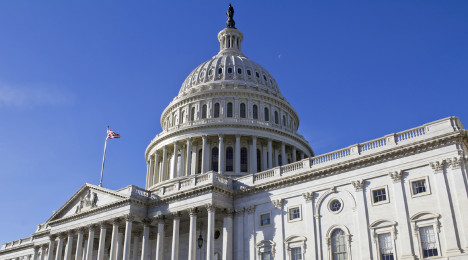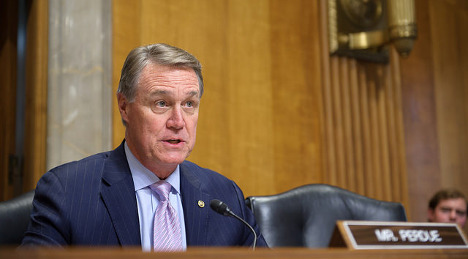While the Consumer Financial Protection Bureau doesn’t have direct jurisdiction over how dealerships operate, a new survey conducted by eLEND Solutions showed 80 percent of dealers expect bureau regulations will be implemented in the near future, further impacting their businesses.
What’s even more telling, the survey also indicated that less than half of dealers have plans in place to meet these new regulations, which might replace dealer participation with mark-up thresholds or a flat-fee model.
Dealers also told eLEND Solutions that they are ready to deliver a sales and financing process that begins online. The vast majority of respondents — 95 percent — agree that the industry should strive to create one, easy streamlined buying experience by starting both the sales and financing process online.
In fact, eight in 10 dealers agree that a connected online and in-store experience will help sell more vehicles faster and lead to greater customer satisfaction. And nearly 70 percent of dealerships say this is a goal for their store.
“This survey underscores that the time has come for a better sales and financing process, whether or not the CFPB has its way,” eLEND Solutions chief executive officer Pete MacInnis said. “The days of the four-hour, very disconnected, sales/financing process is poised to end as dealerships look to move more and more of the sales and financing process online — and connect it end-to-end.”
The main survey highlights included:
— Eighty percent of dealers think it’s highly (35 percent) or somewhat (45 percent) likely that CFPB regulations will be implemented; yet nearly 60 percent don’t have a plan in place to meet these regulations.
— Thirty-four percent think the impact of CFPB regulations will be positive, while another 31 percent think impact will be minor or none at all.
— Seventy-one percent strongly agree that “creating one easy, streamlined buying experience — by starting sales and finance together online — is a worthwhile goal.”
— Seventy-six percent of dealers stated that “connecting the online and offline shopping experiences to create one seamless, unified buying process could lead to accelerated sales, faster retail transaction times and greater customer satisfaction.”
— Sixty-nine percent of dealers say that connecting the online and offline shopping experiences is a goal at their dealership
— A full one-third of dealers say they are reluctant to put F&I online because traditional dealership processes insist financing be arranged exclusively in store.
The survey was conducted online among U.S. dealerships in March and April.
“Establishing a connected buying experience that starts sales and finance together online is an approach that helps dealers modify current negotiation/finance purchase contract processes that are likely to be required as a result of the probable CFPB changes to dealer participation policies,” eLEND Solutions said.
In a previous eLEND Solutions survey, 80 percent of dealers said that their sales and finance process averaged two hours or more and 40 percent reported that theirs lasted three hours or more. Meanwhile a whopping 82 percent of dealers say the ideal end-to-end process should take two hours or less.
Yet, according to a recent Autotrader survey, buyer satisfaction starts to decline after 90 minutes at the dealership. The same study showed that 66 percent of consumers would be much more likely to buy from a dealership that offers their preferred experience.
The National Automobile Dealers Association applauded the continued bipartisan efforts in Congress to rescind what it considers “flawed” guidance from the Consumer Financial Protection Bureau that would “harm” consumers by limiting their ability to obtain discounted auto financing.
This week, Rep. Frank Guinta, a New Hampshire Republican, and Rep. Ed Perlmutter, a Colorado Democrat, introduced H.R. 1737, the Reforming CFPB Indirect Auto Financing Guidance Act of 2015. The legislation would repeal a CFPB bulletin from 2013 that was designed to pressure lending institutions into eliminating the availability of auto financing discounts.
NADA insisted these discounts save consumers millions of dollars every year.
“Consumers have the right to obtain auto financing at discounted rates, and those rights should be protected, not threatened,” NADA president Peter Welch said. “There is bipartisan support in Congress to require the CFPB to consider how harmful its guidance could be to consumers, and we applaud Reps. Guinta and Perlmutter for their leadership on this issue.”
Welch pointed out that the CFPB’s “lack of transparency and accountability” has prompted 91 members of Congress to request additional information from the agency on how it arrived at the conclusions it used to justify its original March 2013 guidance, but none of these requests have been completely fulfilled, and many have gone unanswered altogether.
The Reforming CFPB Indirect Auto Financing Guidance Act was initially introduced at the end of the 113th Congress and garnered the support of 149 House Republicans and Democrats.
In addition to rescinding the CFPB’s flawed guidance, H.R. 1737 would require the bureau to follow a transparent process — including providing for a public comment period, consulting with the agencies that share jurisdiction over the indirect auto financing market, and disclosing its testing methodologies — prior to issuing any future guidance related to indirect auto credit.
Along with Guinta and Perlmutter, co-sponsors of H.R. 1737 include:
• Rep. Marlin Stutzman, Indiana Republican
• Rep. David Scott, Georgia Democrat
• Rep. Steve Stivers, Ohio Republican
• Rep. Brad Sherman, California Democrat
• Rep. Roger Williams, Texas Republican
• Rep. Daniel Kildee, Michigan Democrat
• Rep. Joyce Beatty, Ohio Democrat
The CFPB has acknowledged that it did not analyze or estimate the economic impact its guidance would have on consumers. Additionally, while the bureau’s own report showed that its model for measuring fair credit risk is flawed, it has not responded to a major peer-review study by Charles River Associates that found several significant flaws in the Bureau's methodology, which have led to “inaccurate, incomplete and unreliable” conclusions about pricing disparities in the auto finance market, according to NADA.
NADA chairman Bill Fox spent part of his speech at the NADA/J.D. Power Automotive Forum on March 31 going through what he believes to be the many positives of the retail automotive business, including its employment of thousands of people and its backing by “innovation and value.”
But not everyone sees the dealership business as he and many others do; the Consumer Financial Protection Bureau “looks at our business with a different eye,” Fox said.
“Instead of seeing a competitive business with razor-thin margins, they allege bad behavior without any evidence,” Fox said. “There are millions of consumers shopping for cars right now, online and in our stores. Once a customer buys a car, they need help finding the most affordable auto financing.
“And that’s every customer’s right. Customers can shop on their own, or they can do what 80 percent of all buyers do: they can go to their local auto dealership, and with a push of a button, a dealer can instantly send their credit application to 20 or 30 lenders to get an even better rate,” he continued.
“That fierce competition between lenders is driven by the dealers, because they know that they can get a lower interest rate for customers. Dealers add an extra dimension of competition in this market because they can discount the rate that they are getting from the lenders,” Fox said. “What I see is a good deal for everyone; consumers are getting better loan rates more quickly; banks are getting an instant clientele and dealers are being compensated for creating the most efficient credit market there is in our industry.”
However, Fox alleges the CFPB aims to get rid of that competition and eliminate rate discounting.
The price fixing and flat fee system that the CFPB has proposed “would destroy competition and lead to higher interest rates for everyone,” he said.
“The good news is that the CFPB’s solution isn’t the only one on the table. Dealers have produced a compliance program that ensures compliance with U.S. Department of Justice standards,” he said. “The program ensures the customer’s right to get an interest rate discount fairly.”
Staff writer Joe Overby contributed to this report.
The National Independent Automobile Dealers Association and Dealertrack Technologies recently joined forces to give dealers an opportunity to get their F&I department questions answered without paying a retainer or being charged billable hours.
Dealertrack associate general counsel Randy Henrick worked with NIADA to create an online outlet for dealers to submit questions about adverse action notices, Red Flags, the Consumer Financial Protection Bureau as well as the Federal Trade Commission or any other matters related to F&I compliance
“Have an F&I compliance question or need an update on new rules and regulations which may impact your dealership? You're not alone,” officials said.
“Randy will get back to you personally with a reply at no charge to you or your dealership,” they continued. “There's no catch, no fine print. We simply want to share our industry expertise with the dealer community.”
Dealers can submit their questions at this website.
A pair of legal experts with decades of compliance experience shared a strategy that might help finance companies clear the latest hurdle placed in front of them by the Consumer Financial Protection Bureau — complaints being pushed out online for all the public to see.
The CFPB finalized its policy last month on why the regulator chose to allow these complaints to be made available, a move Michael Thurman said “sounds unfair to me.”
Thurman spent more than 20 years of his nearly three-decade career at firms including Keesal, Young & Logan as well as Loeb & Loeb before opening his own firm about a year ago. Thurman explained to SubPrime Auto Finance News that what the CFPB is orchestrating now is something unlike almost anything he’s seen previously.
“We were all taught there are two sides to every story. But in this case, the company doesn’t get a chance to tell its side,” Thurman said. “Instead, the company must choose from ‘a set list of structured company response options’ created by the CFPB.
“If the options are as vague as those used on the CFPB complaint database for describing consumer complaint, they won’t be very helpful,” he continued. “I seriously doubt a company will be able to select the option: ‘This complaint is a complete fabrication.’
“More importantly,” Thurman went on to say, “the CFPB admits that it ‘is not committing to verify the details contained in each complaint narrative.’ So what’s the value of a set of unverified complaints? If a group of Facebook or Twitter followers elects to barrage an auto finance company with a bunch of unverified complaints, how does that add any information to the public’s or the regulator’s knowledge about the company?
“For a data-driven, information-based 21st century regulator, it appears this new consumer complaint process will operate more like a rumor mill,” he added.
Also sharing her thoughts about the ramifications of the CFPB complaint database protocol was Jonna Boyle, president of Iron Compliance, a consulting firm in Arlington, Texas. Boyle previously served in compliance posts at SFG Finance, Santander Consumer USA and Triad Financial and is a board member of the National Automotive Finance Association.
“The impact of this policy may be largely determined by if and how the industry responds to the complaint narratives that are published on the CFPB's website,” Boyle said. “If the industry remains silent and chooses not to provide any of the structured responses, the impact could be minimal.”
Boyle then touched on whether finance companies should designate a staff member to watch the CFPB complaint database or even add more compliance personnel.
“Providing responses could open the door to an increase in complaint volume, but not enough to require additional staff in the short term,” Boyle said. “The smart strategy would be to respond to complaints as required, but opt out of the public response.
“It’s better if finance companies avoid drawing attention to themselves in such a pro-consumer forum,” she continued. “However, if a company chooses to stand their ground and publicly disagree with a consumer, they should also be ready to publicly declare when a consumer is right. Responding selectively will not go unnoticed. It’s all or nothing.”
Boyle added that she would advise finance companies not to make their CFPB complaint database responses public.
“All public complaint forums such as the Better Business Bureau and online complaint boards are optional, and the CFPB has chosen to make this public response optional for now,” she said. “As long as the finance companies are responding to the complaint as required, no other action is necessary.”
A former examiner with the Federal Reserve Bank of Atlanta now on staff at Equifax will host a compliance webinar aimed at helping finance companies and dealerships handle the impact of the Consumer Financial Protection Bureau.
Cris Larche, senior director of regulation and compliance at Equifax, will talk about the key regulations now enforced by the CFPB that most directly impact both finance companies and the F&I departments of dealerships.
In addition, Larche will discuss enforcement actions to illustrate key concerns and address other relevant issues that can impact auto lending, such as the risk retention guidelines.
Among the key topics to be addressed are:
— Larger Participant Rule
— Compliance Management System (CMS)
— Fair Lending
— Fair Credit Reporting Act
— Unfair, Deceptive, or Abusive Acts or Practices (UDAAP)
— Risk Retention (Qualified Automobile Loan)
The session is set for 2 p.m. ET on April 7.
Finance company and dealership personnel can complete registration for the webinar here.
U.S. House members made their move in hopes of restructuring how the Consumer Financial Protection Bureau operates. Now a lawmaker from the nation’s upper chamber has revealed a measure to curb the financial resources available to the regulator.
Sen. David Perdue recently introduced an amendment to the Senate’s 2015 Budget Resolution regarding the CFPB. Perdue insisted his budget amendment would ensure the bureau is subject to the Congressional appropriations process. Currently, the CFPB operates under the Federal Reserve.
The Dodd-Frank Act established the CFPB’s budget at as much as 12 percent of the Fed’s annual operating expense. That is roughly $600 million without any Congressional oversight over the agency’s functions.
“The reckless Consumer Finance Protection Bureau was spawned from the disastrous Dodd-Frank financial regulation law,” Perdue said. “Right now, the CFPB is a rogue agency that dishes out malicious financial policy and creates new rules and regulations without any oversight from Congress.
“On top of that, the agency itself has failed to operate within its own budget and proven it is more concerned with preserving its own power than protecting the public,” the Georgia Republican continued. “Ultimately, I believe the CFPB should be dismantled, but an important first step is bringing it into the light for the American people to see its harmful effects on consumers.”
Top CFPB Officials Leave for Private Practice
Meanwhile in other news associated with the bureau, Michael Gordon, senior counselor to CFPB director Richard Cordray, is rejoining WilmerHale in April as a partner in the Washington, D.C. office.Gordon joins the financial institutions and strategic response practices, further expanding the firm’s consumer finance regulatory and enforcement capabilities and congressional investigations experience.
“Michael has a broad range of consumer-related enforcement and regulatory knowledge, as well as seasoned congressional investigations and government litigation experience which will greatly enhance our already robust Financial Institutions and Strategic Response Practices,” said Robert Novick, co-managing partner of WilmerHale.
“Client requests surrounding the consumer finance market are growing rapidly due to the uptick in CFPB enforcement and regulatory actions,” Novick continued. “Michael’s deep understanding of the CFPB’s policies, culture and priorities will build out the group’s capabilities as we meet the growing demands from clients for our assistance. We’re delighted to have him back at the firm.”
WilmerHale’s financial institutions practice assists high-profile clients in challenging and complex federal regulatory and legislative, litigation, enforcement, and business transaction matters. Gordon joins the group’s roster of attorneys who have previously held senior level positions in federal agencies, Congress and the executive branch.
“I am so pleased to be rejoining the firm, and I look forward to working alongside so many talented and experienced attorneys,” Gordon said. “The firm is a perfect fit for me, and I know it will provide exceptional opportunities for growth.”
As senior counselor to the CFPB director, Gordon provided strategic advice to the director and senior CFPB officials on policy questions as well as significant enforcement actions, including the negotiation and resolution of complex matters. Prior to that role, Gordon served as the deputy general counsel at the CFPB from 2011-2012 and before that he served on the CFPB implementation team at the time the bureau was established in 2010.
Before joining the CFPB, Gordon served as counselor to the general counsel of the U.S. Department of the Treasury.
Additionally, Gordon has significant Congressional oversight and investigations experience. He served as chief investigative counsel for House Chairman Henry Waxman on the House Energy and Commerce Committees and senior investigative counsel on the House Oversight and Government Reform Committee.
Gordon began his legal career in 1998 as an associate and counsel at Wilmer Cutler & Pickering, working on government enforcement matters and litigation until he departed for public service in 2006.
And Gordon isn't the only CFPB enforcer to depart the agency.
The Washington, D.C., office of K&L Gates welcomed former CFPB deputy enforcement director for litigation Ori Lev as a partner in the firm’s consumer financial services practice.
Lev arrives at K&L Gates following nearly 20 years of public service at a variety of United States government agencies. Prior to the CFPB, he served as the chief of enforcement for the Department of the Treasury’s Office of Foreign Assets Control and as a litigator for the Department of Justice and the Federal Trade Commission. His extensive practice includes litigation, government enforcement, and regulatory compliance affecting banks and other consumer financial services companies.
Having joined the CFPB at the agency’s inception in 2010, Lev helped to establish its enforcement office, assisting in the development of its priorities, policies, and procedures. He supervised a team of more than 20 lawyers responsible for investigating and prosecuting cases involving mortgages, auto lending, for-profit colleges, and student loan servicing, among other consumer financial services and products.
Additionally, Lev coordinated legal and enforcement actions with numerous federal and state law enforcement and regulatory partners including the DOJ, FTC, and state attorneys general.
“Ori’s in-depth knowledge of several U.S. government agencies will be invaluable to our clients as they navigate the ever-changing regulatory and enforcement landscape of the consumer financial industry,” said Steven Kaplan, a Washington, D.C., partner and one of the leaders of K&L Gates’ financial services practice area. “We look forward to him joining our experienced team of lawyers.”
Lev, who will start in June, is the third new partner addition in the Washington, D.C., office this year, following the earlier arrival of partners Grace Fremlin and Joon Yoon. He joins robust consumer financial services and government enforcement practices that have earned various honors including recent first-tier ranking in the banking and finance law, financial services regulation law, and securities regulation categories of the 2015 U.S. News Best Lawyers “Best Law Firms” survey.
Using descriptive words such as unsubstantiated, puzzlingly and unworkable, it didn’t take long for industry associations to question again the methodology of the Consumer Financial Protection Bureau, which on Thursday finalized its policy involving its public-facing consumer complaint database.
Now that consumers have the option to share details of their complaint to the CFPB, the National Automotive Finance Association, the American Bankers Association, the Consumer Bankers Association and the American Financial Services Association each maintained reservations about the bureau making this move.
“While we can appreciate the CFPB’s desire to make consumer complaints available to the public we feel the way it is being done does not provide the public a balanced view,” NAF Association executive director Jack Tracey said in a statement sent to SubPrime Auto Finance News.
“Consumers are able to voice their complaints in their own words, but the financial institution is limited to the use of structured responses,” Tracey continued. “This approach will, in most cases, place the finance company in a poor light. A truly transparent approach would allow both sides the opportunity to articulate their position in their own words.”
ABA president and chief executive officer Frank Keating isn’t so sure the bureau accomplished what it is tasked with doing by this latest move.
“While the banking industry is committed to helping consumers make informed and responsible financial decisions, public disclosure of unverified consumer complaint narratives doesn’t advance that goal and raises significant consumer privacy issues,” Keating said. “This risks turning the CFPB database into a questionable — even misleading — resource and risks tarnishing the reputation of individual companies without substantiation.”
While the CFPB indicated finance companies can choose a response to publish as well, Keating likewise isn’t sure that’s enough of an opportunity.
“The proposal offers no meaningful options for a bank to publically dispute an erroneous complaint,” he said. “Checking a standardized box will not provide valuable information to consumers, and banks will not choose to engage in a public disagreement with their customers.
“Since the CFPB proposes to make no effort to ensure the accuracy of complaint data, the bureau becomes an official purveyor of unsubstantiated and potentially false information instead of fostering informed and responsible consumer choice,” Keating continued.
“For these reasons, Congress was wise not to authorize the bureau to publish and give its official government seal to individual consumer complaints,” he went on to say.
CBA president and CEO Richard Hunt shared a similar assessment of Thursday’s announcement, offering reaction that might trigger the common acronym in social media, SMH, for “shaking my head.”
Hunt said, “While we support the Bureau’s collection of complaint data to identify trends and understand consumer concerns, we are disappointed by (Thursday’s) decision. The CFPB has the ability to demonstrate trends, allow for an appeals process, and normalize data — much like other regulators.
“Puzzlingly, they choose not to use any of these illuminating mechanisms. (Thursday’s) action does not reflect the principles of accountability, transparency, and data-driven decision making which the Bureau professes guides its work,” Hunt continued. “This agency can do better.”
Furthermore, AFSA executive vice president Bill Himpler didn’t hesitate when sharing his reaction to this CFPB policy, either.
“The CFPB’s policy on publishing consumer narratives in its public consumer complaint database is impracticable and unworkable,” Himpler said. “AFSA remains concerned that the CFPB’s consumer complaint database does not adequately protect consumers’ privacy.
“Because consumers are likely to assume a level of accuracy and validity in the complaints posted on a government website, the CFPB’s publicizing unsubstantiated consumer narratives could mislead consumers,” he continued. “In addition, publishing unverified and unfiltered claims could pose significant brand and reputational risk to financial services companies.”
In the past, Consumer Financial Protection Bureau director Richard Cordray called complaints the agency’s compass. And earlier today, the CFPB finalized its policy about how those complaints are gathered and posted — and more importantly for finance company leaders — how institutions can respond to those complaints.
CFPB officials explained that when consumers submit a complaint to the bureau, they now have the option to share their account of what happened in the CFPB’s public-facing consumer complaint database.
The bureau is also publishing a request for information seeking public input on ways to highlight positive consumer experiences, such as by receiving consumer compliments.
“Consumer narratives shed light on the full consumer perspective behind a complaint,” Cordray said. “Narratives humanize the problems consumers face in the marketplace. Today’s policy will serve to empower consumers by helping them make informed decisions and helping track trends in the consumer financial market.”
The Dodd-Frank Wall Street Reform and Consumer Protection Act, which created the CFPB, established the handling of consumer complaints as an integral part of the CFPB’s work. The CFPB began accepting complaints as soon as it opened its doors more than three years ago in July 2011.
The bureau currently accepts complaints on many consumer financial products, including credit cards, mortgages, bank accounts, private student loans, vehicle and other consumer loans, credit reporting, money transfers, debt collection and payday loans. As of March 1, the CFPB said it has handled 558,800 complaints, with mortgages and debt collection being the most frequent topics.
In June of last year, the CFPB launched its consumer complaint database, which the agency contends is the nation’s largest public collection of consumer financial complaints. It includes basic, anonymous, individual-level information about the complaints received, including the date of submission, the consumer’s ZIP code, the relevant company, the product type, the issue the consumer is complaining about, and how the company handled the complaint.
Then two months later, the CFPB proposed a policy that would allow consumers to publicly share their stories when they submit complaints to the bureau. Today, the bureau is finalizing its consumer narrative policy after receiving and considering comments from consumer groups, trade associations, companies and individuals.
“Consumer narratives provide a first-hand account of the consumer’s experience, and adding the option to share them will greatly enhance the utility of the database,” CFPB officials said.
“The narratives will provide context to complaints, spotlight specific trends and help consumers make informed decisions. The narratives may encourage companies to improve the overall quality of their products and services, and more vigorously compete over good customer service,” they went on to say.
Consumer Complaint Narrative Policy
The CFPB’s final Consumer Complaint Narrative Policy lays out the specific procedures and safeguards the bureau is putting in place to publish narratives in the database.
When consumers submit a complaint to the bureau, they fill in information such as who they are, who the complaint is against and when it occurred. They are also given a text box to describe what happened and can attach documents to the complaint. The Bureau forwards the complaint to the company for response, gives the consumer a tracking number, and keeps the consumer updated on its status.
Starting today, when consumers submit a complaint to the CFPB, they will now have the option to check a box and opt-in to sharing their narrative. In order for companies to learn about this new system, the bureau will not publish any consented-to narrative for at least 90 days after the policy’s publication in the Federal Register.
Officials explained the CFPB’s policy recognizes the importance of protecting consumers’ private information, ensuring the informed consent of any consumer who participates, and providing companies with an opportunity to respond.
The bureau believes the policy establishes a number of what it called important safeguards for a clear, fair, and transparent process, including:
• Consumers must opt-in to share their story: The CFPB will not publish the complaint narrative unless the consumer provides informed consent. This means that when consumers submit a complaint through consumerfinance.gov, they have to affirmatively check a consent box to give the Bureau permission to publish their narrative. Currently, only narratives submitted online are available for the opt-in to publish.
• Personal information will be removed from narratives: The bureau said it will take “reasonable” steps to remove personal information from the complaint to minimize the risk of re-identification. “This means the CFPB will use a thorough process to ensure complaints are scrubbed of information such as names, telephone numbers, account numbers, Social Security numbers and other direct identifiers,” officials said.
• Finance companies can choose a response to publish: The CFPB indicated finance companies will be given the option to select from a set list of structured response options as a public-facing response to address the consumer complaints. The bureau added finance companies will be under no obligation to offer a public response, and they have 180 days after the consumer complaint is routed to them to select the optional, public response. Companies will have the option to address all consumer complaints submitted after this policy announcement, not just those where a consumer consented to publication.
• Consumers can opt-out at any time: If a consumer decides at any time that he or she would like to withdraw consent to publish their narrative in the consumer complaint database, he or she has the ability to do so.
• Complaints must meet certain criteria to qualify for narrative publication: In order for the bureau to publicly share a consumer’s complaint narrative, the complaint must meet certain requirements. Such requirements include that the complaint is submitted through the CFPB website, that the complaint is not a duplicate submission, and that the consumer has a confirmed relationship with the financial institution. Complaints will not be published if they do not meet all of the publication criteria.
The CFPB went on to say its policy builds on the safeguards its database already has in place. Complaints are listed in the database only after the company responds to the complaint or after it has had the complaint for 15 days, whichever comes first. The CFPB will disclose the consumer narrative when the company provides its public-facing response, or after the company has had the complaint for 60 calendar days, whichever comes first.
The complete policy is available here.
Request for Information on Consumer Compliments
Furthermore, the bureau is also issuing a notice and request for information (RFI) seeking input from the public on the potential collection and sharing of information about consumers’ positive interactions with financial service providers.
Broadly speaking, the CFPB said it sees two options for sharing positive consumer feedback about finance companies.
One option is to provide more information about a company’s complaint handling such as highlighting the quality of responses to consumers. The second option is to collect and provide consumer compliments — independent of the complaint process.
“The RFI seeks input on these options and welcomes other ideas,” the CFPB said.
The request for information is available here.
On Feb. 18, a coalition of industry trade groups, including the American Financial Services Association and the national Chamber of Commerce, sent a letter to the Consumer Financial Protection Bureau. In the letter, the coalition asked the CFPB to publicly respond to the 2014 Charles River Associates’ study, which found that the methodology used by the bureau to measure disparities in auto dealer reserve was inconsistent and unsound.
After an exhaustive, nearly year-long study, which included the review of 8.2 million auto loans, Charles River Associates concluded that the CFPB’s methodology was “conceptually flawed in its application and subject to significant bias and estimation error.” As a result of dealers not being allowed to record information about race or gender when processing loans, the CFPB had to extrapolate that information through a statistical method using names and addresses. Incredibly, it managed to correctly identify African-American borrowers only 24 percent of the time.
Just think about that: 24 percent! That level of accuracy isn’t even acceptable in batter’s box. It’s astounding that the CFPB is continuing their crusade against auto financing armed with such flimsy data. AIADA and its sister associations firmly believe that discrimination has no place in our industry. If it exists, we all agree that it needs to be stamped out. The problem is, it doesn’t exist, and by trying to solve a problem that doesn’t exist, the CFPB is risking a series of unintended consequences that will ultimately hurt consumers.
While we wait for a public response to this most recent letter, it’s a good time for dealers to consider what damage the CFPB could do to their businesses. If the CFPB’s end game is flat rates, consider what impact that would have on your customers, your employees, your community, and your bottom line. AIADA is fighting the CFPB in Washington, D.C. You can join that fight without leaving your office.
By hosting a Member of Congress at your dealership, you have an opportunity to educate them on how our retail system works, how we handle financing, and how much we value all of our customers. AIADA will handle every aspect of the visit, from issuing the invitation to providing you with talking points. Through experience I can assure you that your representative will be eager to meet with you and your employees.
Having Congress on our side is a critical part of our defense against the CFPB. By hosting a dealer visit, your representative will see firsthand the negative impact a rogue regulatory agency could have on their local economies.
Bradley Hoffman is the 2015 chairman of the American International Automobile Dealers Association.
Finance companies and trade associations might not always agree with the mandates from the Federal Trade Commission and Consumer Financial Protection Bureau, but the two regulatory agencies announced they plan to continue to work in tandem.
This week, the FTC and CFPB reauthorized their ongoing memorandum of understanding. The regulators explained the memorandum outlines the working relationship between the two agencies under the terms of the Consumer Financial Protection Act, and is designed to coordinate efforts to protect consumers and avoid duplication of federal law enforcement and regulatory efforts.
The memorandum was reauthorized for a three-year term. The FTC vote approving the reauthorization was 5-0.
Coinciding with this reauthorization, the CFPB released its latest supervision report highlighting legal violations uncovered by the bureau’s examiners.
The bureau found deceptive student loan debt collection practices, unfair and deceptive overdraft practices, mortgage origination violations, fair lending violations, and mishandled disputes by consumer reporting agencies.
The report also showed that CFPB supervisory resolutions resulted in remediation of $19.4 million to more than 92,000 consumers.
“We are sharing our latest supervisory highlights report with the public so that industry can see trends, examine their own practices, and be proactive to make needed changes before consumers are hurt,” CFPB director Richard Cordray said.
“The CFPB will continue to monitor both bank and nonbank markets to ensure deception is rooted out, deficiencies are corrected, remediation is given to consumers, and violations are stopped in their tracks.”
The complete report is available here.












